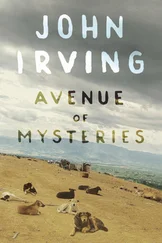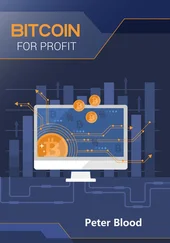As he listened, Aaron wondered how he would have reacted to a similar invasion himself. What would he have done when he was fourteen if some out-of-control hooligan had moved into their house? Someone like … Piet Suiker, he thought of Piet, an incredibly tough and brash kid from his youth, a creep who hadn’t crossed his mind for some fifteen years. Piet Suiker, “Suik” to his sidekicks — the most explosive maniac of them all, who called it quits after his fifth year of primary school, he didn’t go on to sixth grade, what good was that. A lunatic from the early Middle Ages of his life, whose nerve-racking presence seemed certain to last an eternity, but who suddenly, like a plantar wart, shriveled and vanished. Suik, from whom you could order the sport shoes of your choice for just a fiver, which he would then shoplift from Sijbers’ Sporting Goods across the bridge in Venlo; who in the shower room after swimming lessons would grab the nearest pair of glasses and put them on his dick. When he was eleven he’d take you back behind the rose bushes and for a guilder show you how he could, from that same, now shockingly distended noodle, yank out “jism”: still, to this day, by far the most disgusting word Aaron knew. When his Zündapp motorbike was stolen, Suik marched into Genooi, the Bronx of Venlo, armed with a baseball bat, and sure enough, he returned with that bike. While Aaron was doing his high school finals, Piet was roaring down the streets in a souped-up Opel Manta. That kind of kid. What if one night Suik had parked that Manta in front of their house and his overpriced Adidas on the shoe rack next to the kitchen door? That’s what it came down to. Suik at their kitchen table. Suik in his pajamas on his dad’s Commodore. “Boys,” his mother would call from the TV room, “ Run the Gauntlet is about to start,” at which point not only he and Sebastian, but also that brawny nutcase would come barreling down the stairs. That is what happened to Joni.
She loosened up, her warm side touching his. “And even with these kinds of things going on — horrible things, really, I thought so too — I started to take a liking to Wilbert.”
Now he held his breath. With the subtlest possible movement he shifted himself loose from her skin.
“It was a dilemma: of course I didn’t want to like him. But he was nice to me. Protective. He brought me to the station on his motorbike. He insisted on picking me up if I was out late.”
“Great guy,” he said. She didn’t answer. He thought he heard her grind her teeth.
“He introduced me to his music. LL Cool J, Run DMC, NWA — got them all from him. Listen to this, listen to that. He bought me a Walkman …”
“Stole you a Walkman.”
“… a really expensive Sony. He took me to Amsterdam on the sly, to Paradiso: just the two of us, to Public Enemy — my first concert, my father still doesn’t know. We got the earliest train back. And I taught him to ride a horse. What’s now the workshop used to be Peggy Sue’s stall. He couldn’t get enough of it. When he wasn’t on his motorbike or bumming around Enschede he was with my horse. He was determined to learn to ride. I used to go with him to the Horstlinde stables, ride circles in the ring.”
“Drienerlo Probation Service.” He was trying to sound blithe.
“But the worst part was, he was so damn funny. Janis and I, and Mom too, got such a charge out of him. He turned everything into an act. If my father asked him to refill the gravy bowl, he didn’t get up, no, he’d take a dishcloth from the table and lay it across his lap just so, and pretend he was ninety years old and his chair was a wheelchair, squeaking, squawking, turning, and twisting, and shuffle over to the counter. ‘Wankin’ around, nothing to do but pound, randy days and Mondays always crank me down,’ he bellowed all through the house in his best Muzak voice after my mother had been given a Carpenters CD.”
Aaron did not laugh. He wriggled his shoulder out from under her head. “Guess you just had to be there.”
He stared silently across the room, toward the pale-pink curtains with white horses woven into them. Her mother had covered the seat cushions of two wooden desk chairs in the same material. With new eyes, apprehensive eyes, he examined the stuffed animals on the pink-painted bookshelf that also housed her literature list titles. He imagined the adolescent Joni, curled up on her bed with these books, blinking, startled, when Wilbert came roaring up the drive. Or did she perk up? Inside the white wardrobe, its sliding door open, he saw shoeboxes that undoubtedly contained her old school datebooks, her exam papers and notebooks full of “a”s and “o”s drawn like Bubblicious bubbles. He felt the urge to sift through them for signs of Wilbert: his name, a Public Enemy emblem, anything. On top of a stool lay a stack of Elle s, precisely one year’s worth, the subscription they’d given her, after incessant begging, for her fifteenth birthday, but having found it so “irritating” she was allowed to cancel it after just three months. This kind of trivia, this was what she’d inundated him with. Jesus H. Christ. No matter how hilarious she thought that prick was, 1989 must have come to a sorry end.
He asked: “What went wrong?”
No answer. Then: “We’ve got to get some sleep.” She reached under her pillow and brought out a sleeping mask.
“What went wrong. Come on.”
“Did something go wrong? Yeah, it went wrong.” She put the mask back under the pillow and exhaled slowly. “At home, actually. It all happened too close by, more or less in Dad’s face, and then enough was enough. After eleven months Siem had totally had it with him. Wilbert had to go, the rotten apple had to be chucked out, and soon, before they hurt each other. That mood hung in the house for weeks. They needed a scapegoat.”
“A scapegoat is someone who’s innocent.” He slid his hand between the covers and her belly, he felt her pull back. With a sigh he switched off the bedside lamp.
“I was getting tutored in French at the time,” she said. “And those tutorials were given by a woman — an adult, or so I thought at the time, but in fact she was still a girl, about as old as I am now — who had just graduated cum laude from Utrecht specializing in, um … whatshername, Sartre’s battleaxe.”
“De Beauvoir.”
“Yeah. Her. But shit, what was that girl’s name again …” She was concentrating hard, it was something with an F, she said.
“Does her name matter?”
“She was a prig, but a pretty prig. Well groomed, chic, uppity, like one of those governesses in a film. Lily-white, beauty spots.”
“You were being tutored,” he pressed. Stick to the subject — but she launched into an exposé of the educational regime in their home. The minute she or Janis were faced with a C-minus, her parents would rustle up a private tutor. “Achievement is the secret code word in this family, although they’ll never admit it. Just graduate? Come on. I didn’t have to be valedictorian, but it would be nice. In Berkeley they didn’t send me to just any private school. Berkwood Hedge: small classes, emphasis on culture, tuition in the thousands. Later, in Boston, Kids Are People Middle School — American Montessori education, a Shakespeare play a year. A ‘C’ was way below par for a Sigerius.”
“And meanwhile a juvenile delinquent sat in the garden revving his motorbike,” he said.
“… Vivianne! Vivianne Hiddink. My parents doted on her. She had lived in Strasbourg, studied for a year at the Sorbonne, had started organizing programs for Studium Generale here in Twente. We’d hardly started the lessons and already my father had to invite her round. In America they used to have Richard Feynman over, if the name means anything to you, but anyway Mademoiselle Hiddink was interesting too, so why not.”
Читать дальше












